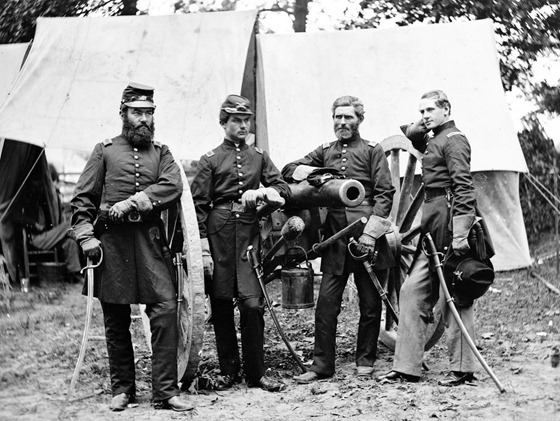June.—Anna and I had a serenade last night from the Academy Glee Club, I think, as their voices sounded familiar. We were awakened by the music, about 11 P.M., quite suddenly and I thought I would step across the hall to the front chamber for a match to light the candle. I was only half awake, however, and lost my bearings and stepped off the stairs and rolled or slid to the bottom. The stairs are winding, so I must have performed two or three revolutions before I reached my destination. I jumped up and ran back and found Anna sitting up in bed, laughing. She asked me where I had been and said if I had only told her where I was going she would have gone for me. We decided not to strike a light, but just listen to the singing. Anna said she was glad that the leading tenor did not know how quickly I “tumbled” to the words of his song, “O come my love and be my own, nor longer let me dwell alone,” for she thought he would be too much flattered. Grandfather came into the hall and asked if any bones were broken and if he should send for a doctor. We told him we guessed not, we thought we would be all right in the morning. He thought it was Anna who fell down stairs, as he is never looking for such exploits in me. We girls received some verses from the Academy boys, written by Greig Mulligan, under the assumed name of Simon Snooks. The subject was, “The Poor Unfortunate Academy Boys.” We have answered them and now I fear Mrs Grundy will see them and imagine something serious is going on. But she is mistaken and will find, at the end of the session, our hearts are still in our own possession.
When we were down at Sucker Brook the other afternoon we were watching the water and one of the girls said, “How nice it would be if our lives could run along as smoothly as this stream.” I said I thought it would be too monotonous. Laura Chapin said she supposed I would rather have an “eddy” in mine.
We went to the examination at the Academy today and to the gymnasium exercises afterwards. Mr. Noah T. Clarke’s brother leads them and they do some great feats with their rings and swings and weights and ladders. We girls can do a few in the bowling alley at the Seminary.








 Written from the Sea islands of South Carolina.
Written from the Sea islands of South Carolina. 24th.—To-day General Hooker advanced his picket lines about one mile nearer to Richmond, and the incessant roar of artillery, with the constant volleys of musketry and the cheers of fighting men, wafted to us from beyond the Chickahominy, tell that it is being done, not without cost of the blood and suffering of brave and good men. At night we hear that Hooker’s movement has been a success, crowned with a victory. General Hooker rarely undertakes a thing which he does not accomplish; but I fear our loss has been heavier than is now admitted. These frequent reports from our Commander-in-Chief, of great victories with little loss, subsequently contradicted by the real facts, begin to shake the confidence of a large portion of the army in his infallibility.
24th.—To-day General Hooker advanced his picket lines about one mile nearer to Richmond, and the incessant roar of artillery, with the constant volleys of musketry and the cheers of fighting men, wafted to us from beyond the Chickahominy, tell that it is being done, not without cost of the blood and suffering of brave and good men. At night we hear that Hooker’s movement has been a success, crowned with a victory. General Hooker rarely undertakes a thing which he does not accomplish; but I fear our loss has been heavier than is now admitted. These frequent reports from our Commander-in-Chief, of great victories with little loss, subsequently contradicted by the real facts, begin to shake the confidence of a large portion of the army in his infallibility.
